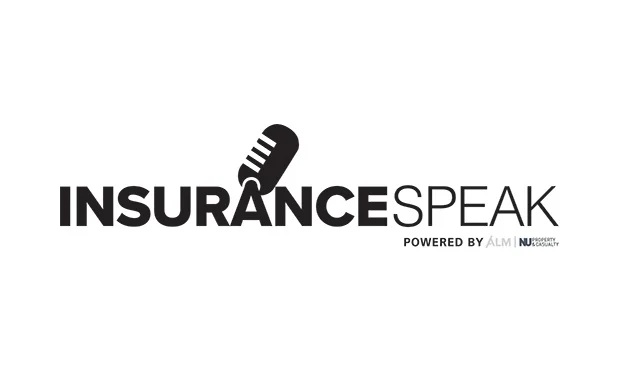The False Claims Act (FCA) is the primary means to fight fraud perpetrated against the federal government. The FCA imposes civil and criminal liability for knowingly making a false or fraudulent claim to the United States for money or property; or to avoid an obligation to pay money (reverse false claim). Due to the emphasis on enforcement of the FCA, the U.S. Department of Justice (DOJ) reported that it recovered more than $3.5 billion in settlements and judgments from claims arising under the FCA during fiscal year 2015. Since January 2009, the DOJ has recovered more than $26.4 billion.
Whistleblowers alone filed 638 qui tam suits in 2015 and were awarded $597 million during the same period. FCA claims have been on the rise as the DOJ, in collaboration with other governmental agencies, such as the Centers for Medicare & Medicaid Services and the Health Care Fraud Prevention and Enforcement Action Team, continues to crack down on fraud, waste and abuse in order to protect taxpayers' dollars. Thus, the key is to be proactive in managing the risk before an FCA claim is made.
Under the FCA, the government may bring its own action or may intervene in the existing qui tam complaint, a private right of action brought by a whistleblower (relator) against an individual or company accused of engaging in fraudulent activities against the government. A qui tam lawsuit remains under seal for 60 days, giving the DOJ an opportunity to investigate the allegations and decide whether it will join in the case. After completing its investigation, if the government does not pursue the case, the whistleblower with knowledge of the fraudulent activity can proceed with the case on the government's behalf.
Where a defendant is found liable under the FCA, treble damages and penalties of $5,500 to $11,000 per false claim are generally awarded by the court. Effective August 1, a fine per “false claim” submitted increases from $11,000 per claim to $21,563 (adjusted for inflation). These damages are intended to compensate the government for its investigation and litigation costs, as well as punish the defendant for its wrongdoing. The relator, in a qui tam action, receives a share of the recovery, ranging from 15% to 30%. However, only the “first-filed” relator is entitled to a share of the recovery.
Targeted companies and individuals, including beneficiaries, hospitals, pharmacies, clinical laboratories, plan sponsors, employees, employer groups, and brokers and agents, can be subject to both criminal and civil fraud investigations. More specifically, any person who knowingly submits a false claim to the government; causes another to submit a false claim to the government; or knowingly makes a false record or statement to get a false claim paid by the government is subject to FCA liability. In this context, “knowingly” means actual knowledge that the information is false; deliberate ignorance of the truth or falsity; reckless disregard of the truth or falsity. No specific intent to defraud is required.
Many civil and criminal fraud cases arise when inappropriately billing the government. Some schemes involve billing for a non-covered service as a covered item, providing medically unnecessary treatments or incorrect reporting of diagnosis or procedure.
|Directors & officers, errors & omissions and employment practices liability insurance may pay for the defense of an FCA lawsuit. (Photo: Shutterstock)
|Insurance protection against FCA
FCA investigations and actions can be expensive to defend and even more costly when factoring in the potential for large settlements and judgments. Address any possible risks resulting from violation of the FCA through an insurance program. Insurance coverage, such as employment practices liability, directors & officers and errors & omissions, may pay for the defense of FCA claims and possibly pay for the settlement or judgment as well. Know and re-evaluate all company insurance policies in their entirety with attention to some of these areas:
-
Notice provision.
-
Definition of a claim to include regulatory wrongful act and subpoena, as well as the definition of loss to encompass civil fines, multiple damages and penalties against an Insured for Regulatory Wrongful Acts to the maximum permissible under the law.
-
The conduct exclusions wording should specify that the adjudication must also be non-appealable. Otherwise the trial court judgment may be sufficient to bar coverage.
-
Ability to pick up prior acts by the removal of any pending or prior date(s).
-
Obtain pre-claim assistance for government inquiries, inclusive of interviews and meetings.
It would also be prudent to have third parties add the company as an additional insured on their policies.
Components of an effective compliance program
Next, a compliance program should be in place in an effort to prevent fraud and mitigate risk. Per the Office of Inspector General, an effective compliance program should include the following key components:
-
Formulate internal written policies, procedures, and standards of conduct that define the organization's commitment to compliance with all applicable state and federal rules.
-
Launch a compliance committee with a designated compliance officer.
-
Provide proper education and training on FCA and other regulatory compliance measures.
-
Develop good lines of communication by encouraging internal reporting, including an anonymous hotline.
-
Promote an organizational culture that does not tolerate retaliatory actions against whistleblowing employees (such as harassment, discharge or adverse employment action taken as prohibited by the FCA).
-
Set up procedures for effective internal monitoring and auditing to detect any fraud, waste or abuse.
-
Have a plan of action for responding to identified offenses.
-
Establish a disciplinary system.
Katherine C. Tower, JD, MBA, RPLU, is assistant vice president of the Management Liability Claims Unit with OneBeacon Insurance Group. This article does not reflect the statements or views of OneBeacon Insurance Group, or any of its affiliates. OneBeacon is not responsible for its content.
Want to continue reading?
Become a Free PropertyCasualty360 Digital Reader
Your access to unlimited PropertyCasualty360 content isn’t changing.
Once you are an ALM digital member, you’ll receive:
- Breaking insurance news and analysis, on-site and via our newsletters and custom alerts
- Weekly Insurance Speak podcast featuring exclusive interviews with industry leaders
- Educational webcasts, white papers, and ebooks from industry thought leaders
- Critical converage of the employee benefits and financial advisory markets on our other ALM sites, BenefitsPRO and ThinkAdvisor
Already have an account? Sign In Now
© 2024 ALM Global, LLC, All Rights Reserved. Request academic re-use from www.copyright.com. All other uses, submit a request to [email protected]. For more information visit Asset & Logo Licensing.









